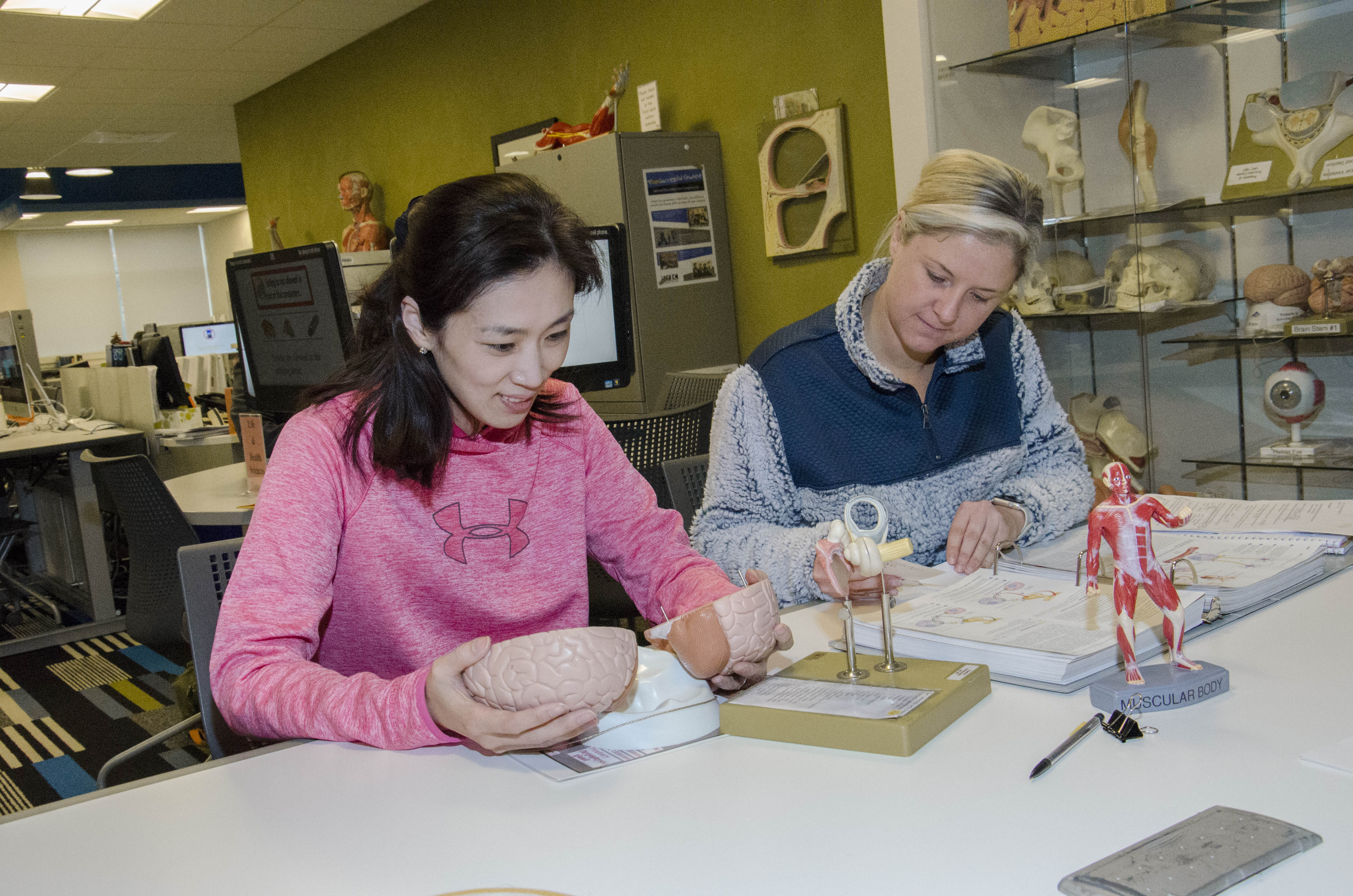Mission Statement and Guidelines
Mission Statement
The mission of the Success Center is to supplement and enhance classroom instruction by assisting students in developing the skills and strategies they need to become confident, independent and active learners. The Success Centers are committed to assessing student learning as a means of improving student success.
General Guidelines
- Success Center services are available to currently enrolled SWIC students only.
- Students must sign in with a valid student ID number to receive Success Center services.
- Please respect the rights of others to have an environment that is conducive to learning. Keep voices lowered while working in the Success Center.
- Silence all cell phones and other electronic devices. Please leave the Success Center to talk on the phone.
- If using an audio program, please use headphones, keeping volume to a minimum. Headphones are available for checkout at the help desks.
- Models, textbooks, and other Success Center resources are available for use in the Success Centers and may be checked out at the help desks with a student ID or other valid identification.
- When demand is high, resource checkout may be limited to one hour per student.
- No food is allowed at the computers. Light snacks (i.e., vending machine type) are allowed only in the tutoring areas.
- Printing is available for 10¢ per sheet in black and white and 25¢ per sheet in color. The Print Stations accept cash only; credit/debit cards are not accepted.
- Children are only allowed in the Success Center on an emergency basis and must be monitored by the student at all times. Children cannot sit at computer stations.
- Do not leave personal items in the Success Center. The staff is not responsible for items left in the Success Center and will turn them over to Public Safety.
- You may be asked to leave the Success Center if you violate the Student Conduct Code or Success Center Guidelines.
Tutoring Guidelines
- Students must be currently enrolled through SWIC in the same course for which they are requesting tutoring.
- Students are responsible for sharing assignment guidelines and/or class notes so tutors can determine an instructor’s preferred approach for the assignment. Otherwise, tutors will utilize the methods with which they are familiar.
- Success Center tutors will not make assumptions regarding class requirements or grades.
- Tutors may offer examples, handouts, and sample exercises that relate to assignments and will help students understand specific concepts but will not provide direct answers to students for assignments.
- Success Center tutors will not answer or work problems on take-home exams or quizzes, but limited assistance (discussing strategies, pointing out possible errors, etc.) can be provided at the tutor’s discretion or per the instructor’s directives.
- Tutoring is available on a walk-in basis only. The Success Center does not accept appointments. Tutors and staff must circulate to assist all students; therefore, extended individual tutoring sessions cannot be expected, especially during peak tutoring hours.
- For math, science, and business problems, students should study the material and begin the problems before asking a tutor for help. English/Liberal Arts students should read all assigned material and try to answer homework questions before asking for assistance.
- Students who miss a class or need extensive review should first utilize the appropriate learning aids (online tutorials or support) available in the Success Center.
- All Success Center resources must be used in the Success Center; resources cannot be removed from the Success Center or checked out for use outside the Success Center.
Paper Reviews and Writing Tutoring - Students requesting a paper review by a tutor must have their drafts typed and printed.
- Tutors may assist a student with word processing questions at the computer, but cannot review a paper on the computer.
- Since tutoring time is limited, tutors will review only one paper per session.
- For multiple reviews of the same paper, students should indicate changes made from previously reviewed drafts.
- Tutors may not be able to review the entire content of lengthy papers (especially papers over 5 pages), but they will read portions as requested by the student, offering feedback and suggestions for improvement and revision.
- Tutors will guide students to make their own corrections and changes by pointing out patterns of errors rather than editing or proofreading.
